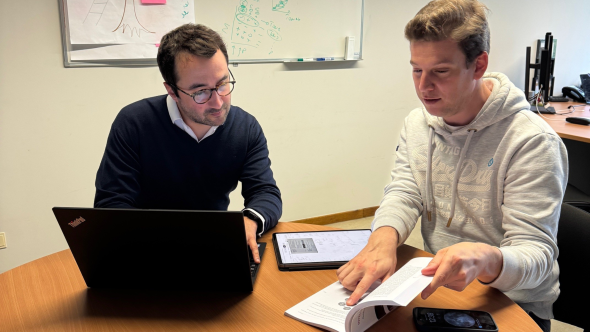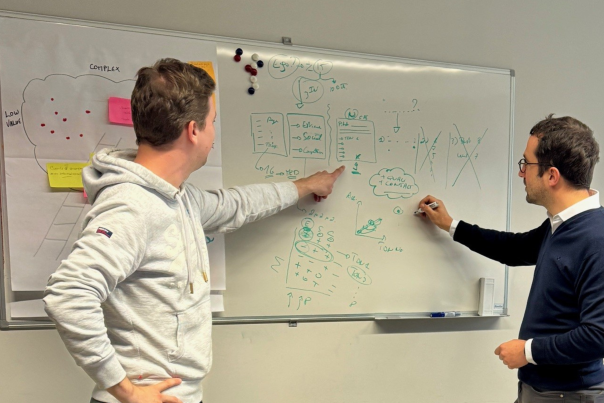With its 5,000 employees, CHU UCL Namur is a unique field of study. A university hospital and the leading private employer in the province of Namur, it combines care, teaching and research missions, while facing the challenges of a constantly evolving organization. In this context, better structuring projects, reinforcing strategic steering and intelligently integrating technological innovation is becoming an imperative to guarantee the efficiency of processes and the sustainability of the reforms undertaken.
In contrast to other sectors, where projects are often entrusted to professionals trained in classic project management methodologies, hospitals rely mainly on non-professional project managers. These players, be they doctors, nurses, pharmacists, biologists, administrative staff, etc., regularly find themselves piloting strategic initiatives without dedicated project management training. Kevin Lejeune is interested in this reality, and seeks to understand how their intrinsic motivation and ability to structure initiatives in an informal setting influence the success of hospital projects. His doctoral thesis is part of a wider reflection on the balance between professionalization and organizational agility, supported by the academic expertise of UNamur.
While the sponsor is often presented as a key figure in projects, his role remains unclear and unevenly invested in reality. To what extent does his real involvement and interaction with the project manager influence the success of hospital initiatives? Drawing on the theory of leader-member exchange, Kevin Lejeune sets out to demonstrate that it's not so much the presence of the sponsor that matters, as the quality of his or her commitment. His work highlights three essential levers: the sponsor's concrete actions, his relational qualities and his level of involvement. This theoretical framework, nurtured by regular exchanges with the academic world of the EMCP Faculty, aims to provide tangible recommendations for rethinking leadership in hospital governance and better structuring the support of project managers.
The rise of artificial intelligence in healthcare opens up promising prospects, but also raises organizational and psychological resistance. How can we ensure that these tools do not remain isolated experiments, but become genuine catalysts for innovation within healthcare establishments? This is the issue that Kevin Lejeune explores in the final part of his research. He aims to identify the factors that influence the acceptance and integration of AI tools into hospital processes. Far from taking a purely technological approach, he focuses on the psychological and behavioral barriers that condition the adoption of these innovations. In particular, it analyzes the impact of perceived competence, self-esteem and professional recognition on the adoption of AI tools. By crossing hospital fieldwork and academic contributions, notably from UNamur, the aim is to propose implementation strategies adapted to the human dynamics specific to hospitals.
Through this thesis, Kevin Lejeune aims to offer hospitals operational keys to improve the management of their projects, structure the role of sponsors and support the adoption of technological innovations. Combining scientific rigor with a grounding in the field, his work is based on a dual approach: deciphering hospital organizational mechanisms to identify levers for improvement, and ensuring that these recommendations can be implemented pragmatically.

